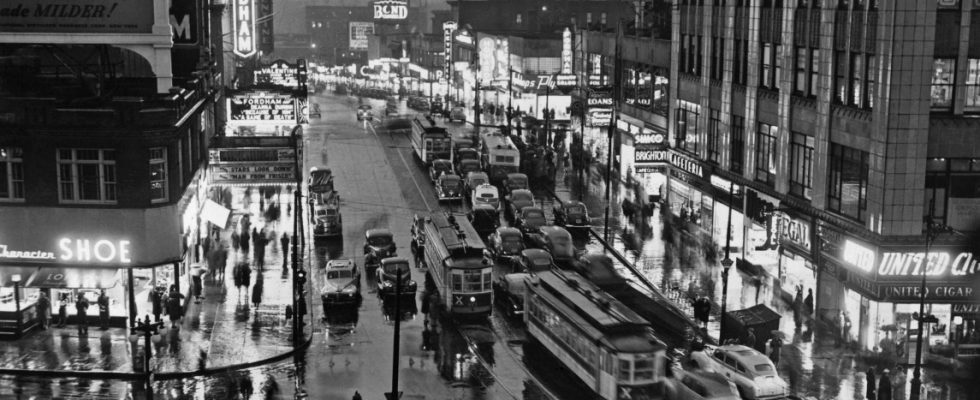For nights like this, George always goes to the Lexington Plaza in New York, he can always get a room here at short notice, and when he and the young woman enter the room at three o’clock in the morning, the small holdall is already there, with half a bottle of Scotch in it , a dressing gown, a pair of slippers, an older number from Crimewaysthree volumes of stories and poetry, handkerchiefs, pajamas, aspirin.
The woman tonight is Pauline, and a lot of alcohol has already spilled. George is married, one daughter, and he knows the risk of a night like this, he knows the price. “Suddenly all sorts of things started to move and whirl to other places, but as if they had always been there.”
“The Big Clock” by Kenneth Fearing was published in 1946, it was his greatest success as an author, the novel has been present in Anglo-Saxon countries since its publication, and it was first published in German this year. The film that John Farrow made in 1948 is available on DVD, with Ray Milland and Charles Laughton, the German title: “Spiel mit dem Tode”. A radical crime construct, it unites those who must cover their tracks with those who must read those tracks in one person.
Kenneth Fearing: The Big Clock. Translated from the English by Jakob Vandenberg. Afterword by Martin Compart. Elsinor, Coesfeld 2023. 200 pages, 20 euros.
(Photo: Elsinor)
George Stroud is Editor-in-Chief of Crimeways, a magazine in Earl Janoth’s empire (and the scenes in the editorial offices have a melancholic tinge today, with the heaps of magazines being discontinued). When he sets off again with Pauline in the spring, he himself becomes a victim of his job. Pauline is the lover of his boss Janoth, who kills her in an emotional state, and an attempt is made to direct the suspicion of murder to an unknown person – namely George – who was seen in front of her house – but: not recognized! – became. And George is to direct the hunt for the unknown.
An absurd nightmare that breathtakingly mixes two American genres, the noir and the sophisticated comedy. The great clock, the social mechanism, is inexorable and blind. Is George “morally a zero,” as Julian Symons, the great crime theorist, put it? George embodies exactly the mood of middle class America after the World War when things were spun elsewhere, that outrageous levity, that foolhardy levity – which has to do with the fact that Kenneth Fearing – Martin Compart gave a vivid portrait of him in the afterword – a poet and a leftist. “You can’t challenge the machine” – a realization that is also a challenge.

